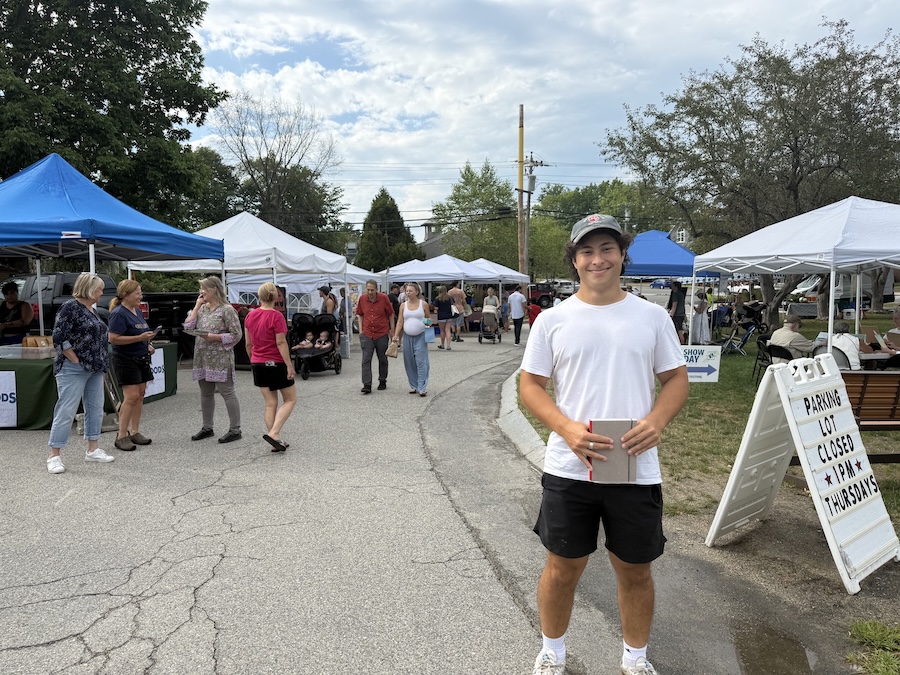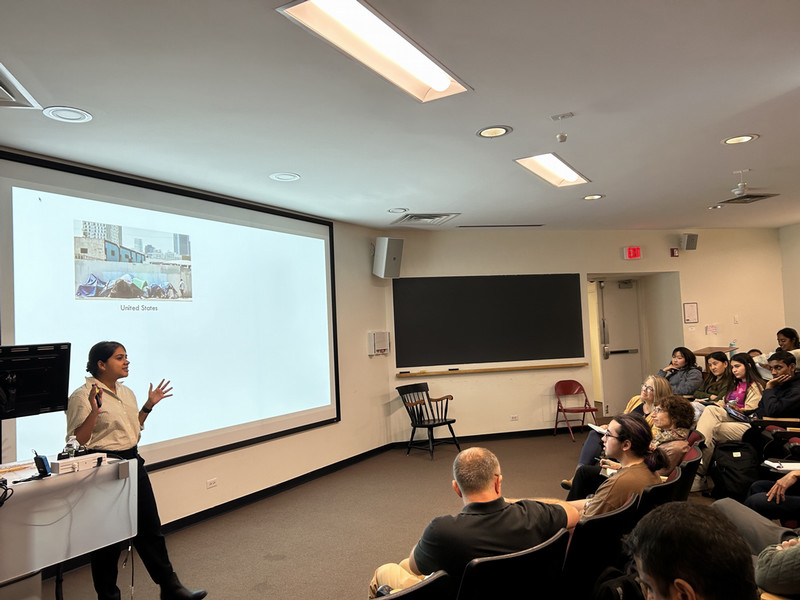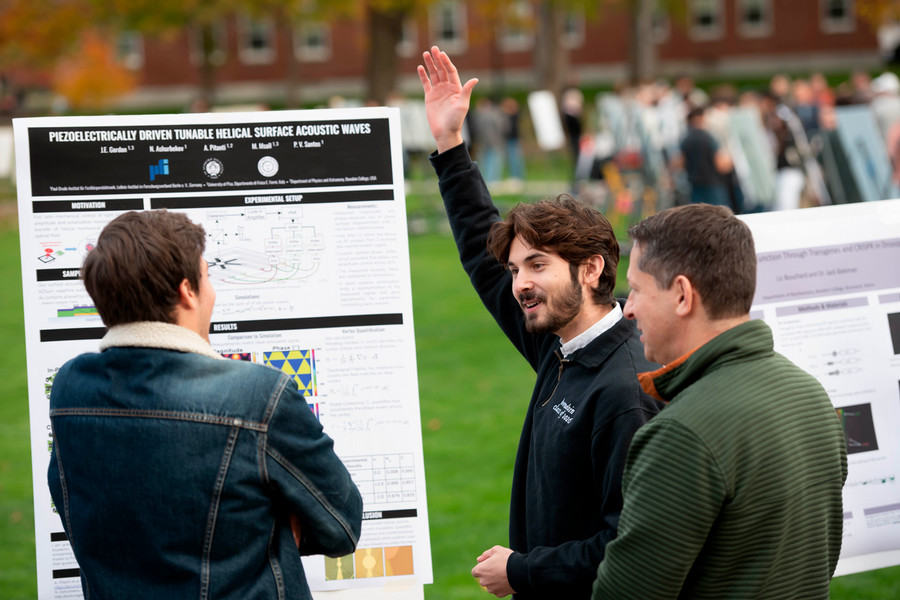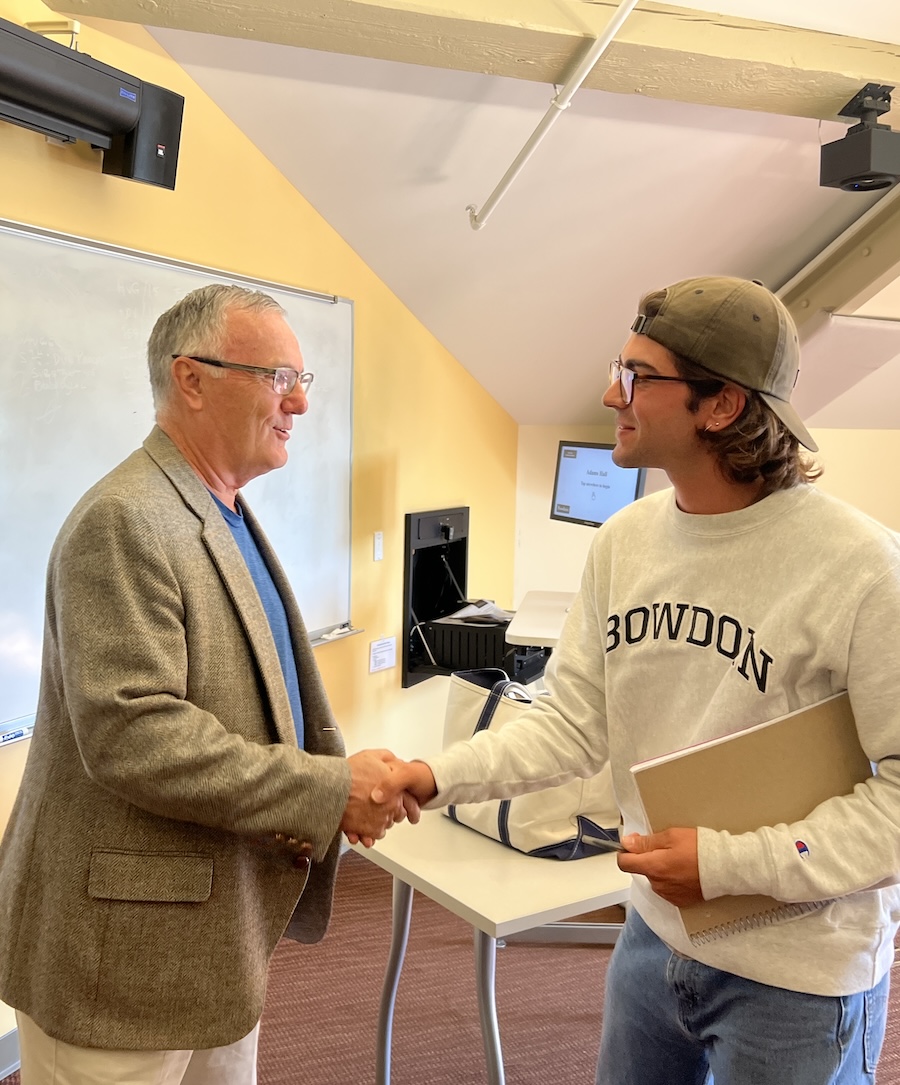Social Safety Nets in the Age of Coronavirus
By Tom PorterFour Bowdoin professors from different academic disciplines attended a recent Zoom panel hosted by Bowdoin Democrats. They took questions from students about the extent to which social safety nets could be affected by the COVID-19 pandemic.
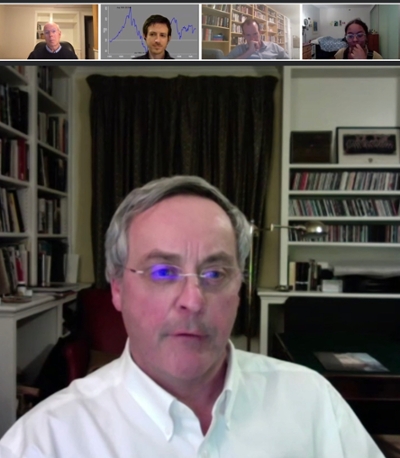
The participating faculty were Assistant Professor of Economics Matthew Botsch, who specializes in the economics of banking and finance; his departmental colleague John Fitzgerald, the William D. Shipman Professor of Economics; Visiting Assistant Professor of German Andrew Hamilton, who studies the relationship between literature and politics, among other things; and Associate Professor of Government and Asian Studies Henry Laurence, a Japan specialist who also teaches courses on British politics. Here’s a reflection of some of their thoughts:
The meeting was chaired by Irene Brogdon ’22, who opened the discussion by asking faculty members to compare the economic crisis sparked by the pandemic to both the Great Depression and the recession of 2008
Matthew Botsch began by pointing out one key difference, which is that the Great Depression and the recession of ’08 were financial crises, whereas what we’re facing now is a public health crisis. “The parallels between the Great Depression and 2008 are stronger,” he said, “as both were triggered by banking collapses.” The key lesson of the Great Depression that policymakers should remember during the current crisis, he continued, is the need for a very strong monetary response from the Federal Reserve, to prevent a lasting financial crisis. “It’s incredibly important that the government gets its response right,” he said.
Henry Laurence stressed the political angle, how the Great Depression led to a “realization that governments could do great things” and showed the need for a social safety net to protect the millions of people affected by an economic downturn. It was these forces, he said, that led to the creation of the welfare state in the United Kingdom after the Second World War, when the National Health Service was established, along with a social security system. The rescue package that saved the banks in 2008 was seen as a “rich person’s bailout” that avoided any “meaningful political changes” and led to banks that are “still too big to fail.” President Obama, he said, should have introduced structural reforms before implementing the bailout.
Andrew Hamilton also regarded the problem in political terms. “I see a crisis of political power,” he said. His concern is that, despite America having gone through the Great Depression and the 2008 recession, “It is clear we don’t have a political party that represents workers’ interests.”
John Fitzgerald responded: “The economy needs a financial system to work, and that involves banks that have enough funds.” Botsch echoed this view: “My read is that the bailout responses in 2008, though controversial, were extremely effective. They led to job creation as banks received funds and lent out money, which hastened the recovery.”
Panelists were also asked what they thought were the biggest failings of the social safety net in the US during the pandemic.
“The obvious one is the health care system,” said Fitzgerald, where the coronavirus pandemic has exposed “numerous problems and disparities.” The failures brought about by the current crisis, he added, are because “our system is employer-linked.” Consequently, as unemployment numbers go up, more people are losing their health insurance.
With unemployment numbers continuing to worsen, Botsch warned the US could see as much as 30 to 40 percent of the labor force being out of work before the crisis is over, “which is much worse than European countries.” There is, he added, a lesson to be learned from the response of European governments, “who are stepping up to pay a portion of people’s wages to keep them in employment. This approach helps to keep small businesses afloat during these tough times.”
The biggest problem with the system in the US, said Hamilton, is that it counts on the goodwill of those in government. “If the person in charge opposes safety net programs, they’re not going to survive. History shows us that.” America needs what Hamilton called a “sabotage-proof” system that could withstand efforts to undermine it, he argued.
As debate of this particular question drew to a close, Laurence struck a hopeful note among the panelists. “Perhaps this pandemic will signal that it’s time for a cultural shift in attitudes toward the idea of a social safety net. People being jobless through no fault of their own need help while they find other work, which turns out to be more economically efficient as well as more humane,” he concluded.
